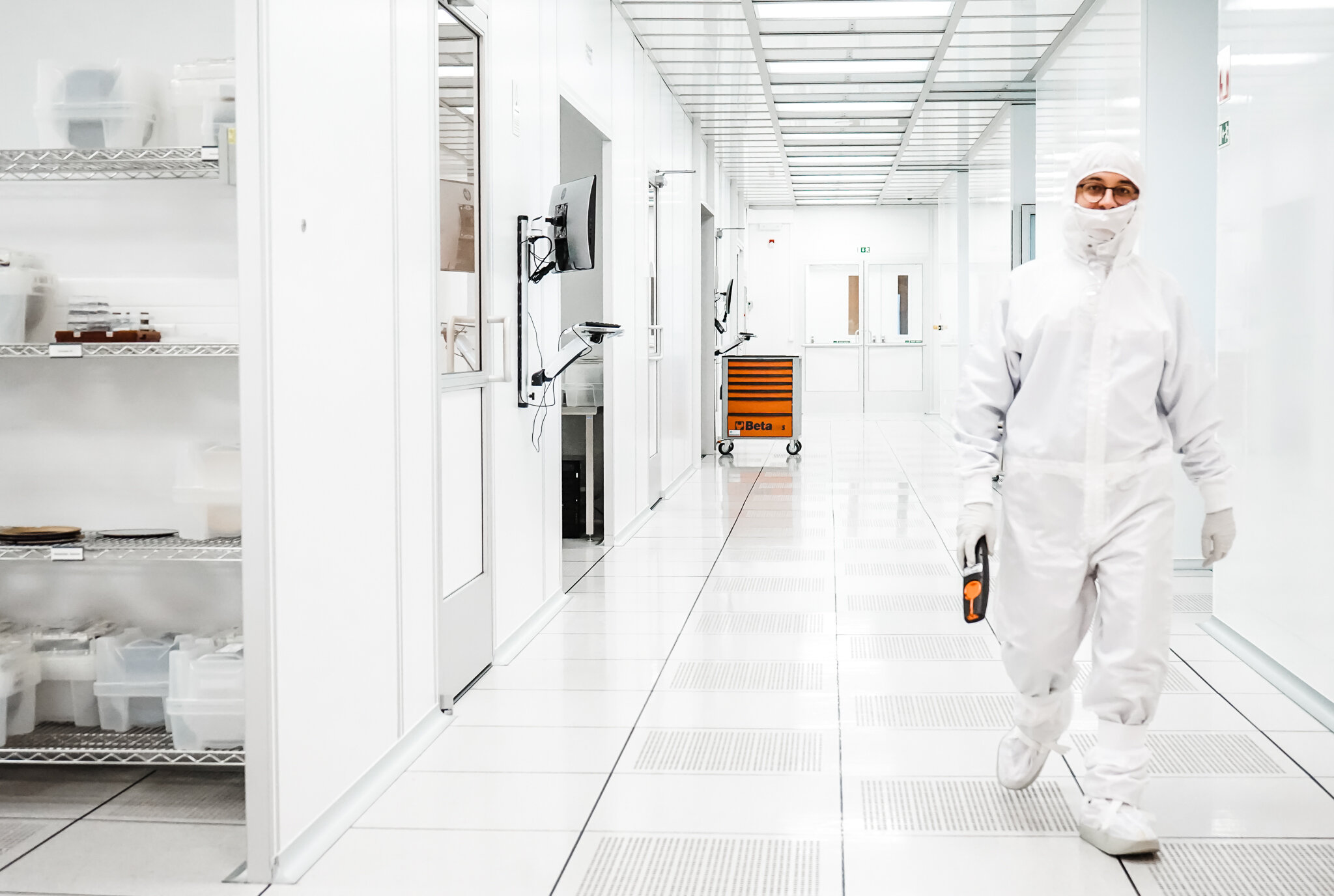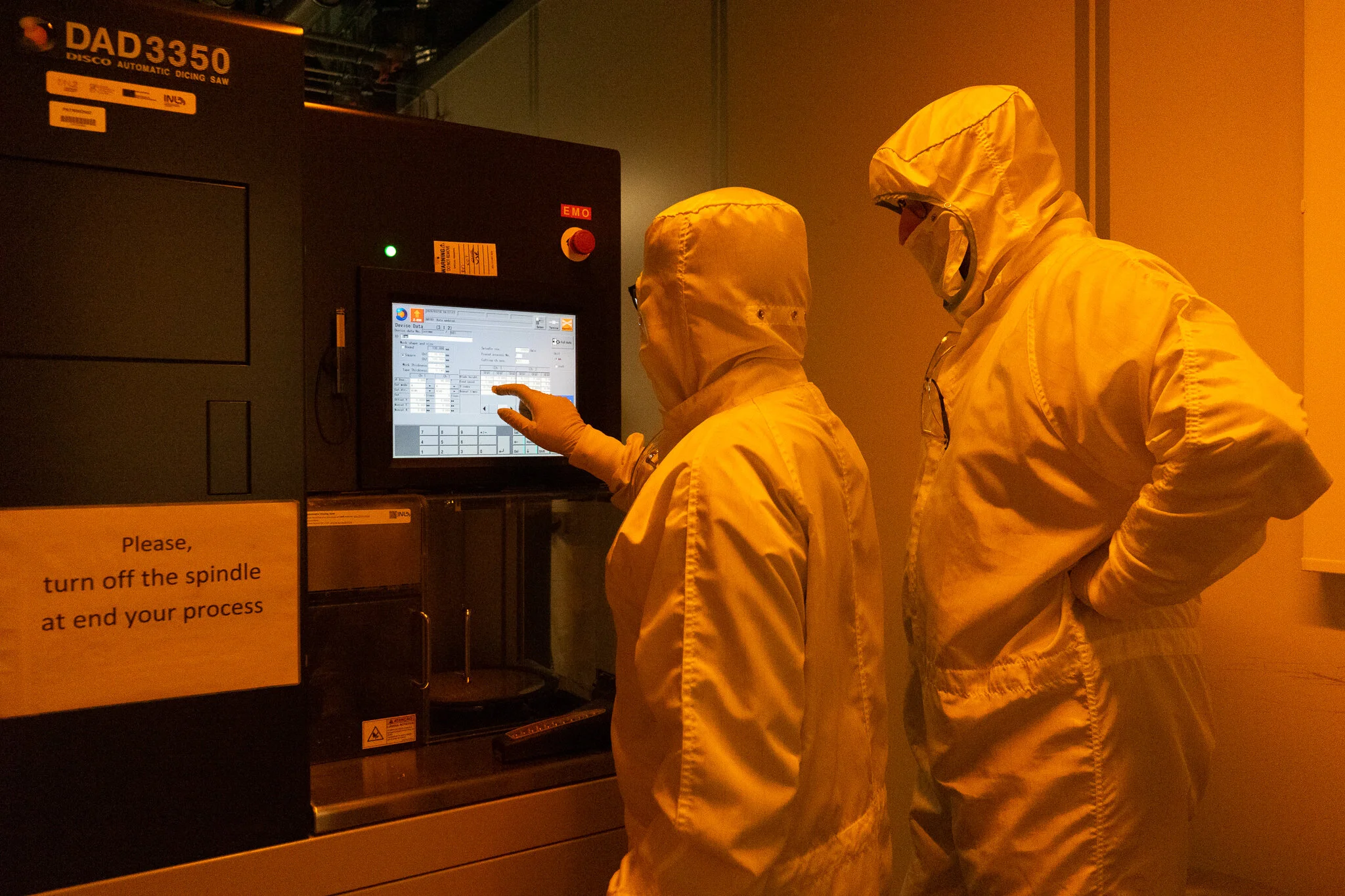
“The innovative applications of tomorrow”, interview with Jérôme Borme
November 9, 2020
Jérôme Borme is a Staff Researcher in the team 2D Materials and Devices. He focuses his work in the design and fabrication of devices based on graphene and other 2D materials, applied to biosensing. He is also responsible for the electron lithography at INL and designs the nanopatterning processes. At an educational level, he teaches lithography at the University of Minho.
Jérôme, can you tell us a bit about your path and your main area of work?
I have followed the general Engineering course at the École Centrale de Lyon, with the aim of being able to take part in multidisciplinary research projects. I’ve started my research on the interactions between magnetic materials, then on the application of these materials to magnetic read heads used in hard disks. At INL I’ve started to be interested in graphene and two-dimensional materials, which present unusual properties and in practice allow sensors with new and much more efficient properties.
What is the importance of your work, your research?
The research in which I take part prepares the innovative applications of tomorrow. Applications of graphene and analogous materials are in both seemingly distant applications such as building materials, energy storage, quantum communication, and biomedical devices. Graphene will not replace all existing technologies, but some of these applications could be a small revolution in their field. In particular, I am currently working on novel diagnostic tests that are both precise, rapid and inexpensive, which would allow a faster response to present and future epidemics.
If you weren’t a Researcher, what would you be doing?
It is a difficult question because the researcher is not only a profession, it is an attitude of thought. For example, a cook who designs and tries new recipes and publishes the best ones in a book also follows a researcher’s approach. It would be difficult for me to completely let go of this way of thinking. If I had to choose a profession without any research component, it would be a librarian. Research is the creation of new knowledge. Libraries preserve this knowledge, and new technologies make it available to as many people as possible.
Any advice for students considering a career in science?
The most important is motivation. Scientific studies are difficult, but the scientific career that follows is even more so and requires both luck and tenacity. The first step is to know which research team to start with. Visit several teams, assess the working conditions and the atmosphere. This is just the start, as you will likely have to change cities and countries early in your career, even if your goal is to find stable employment in your country. Long stays in foreign teams not only allow you to familiarize yourself with other working methods but also to create the network of partners essential for obtaining international projects which are the basis of funding for scientific research.
Briefly, what excites you about your next projects?
It is the impression of building something useful, of contributing to the irreversible progress of the world. Our individual contribution is necessarily very modest, but it remains, as articles in scientific journals are read and cited for many years after their initial publication, and may influence the work of other scientists around the world.





